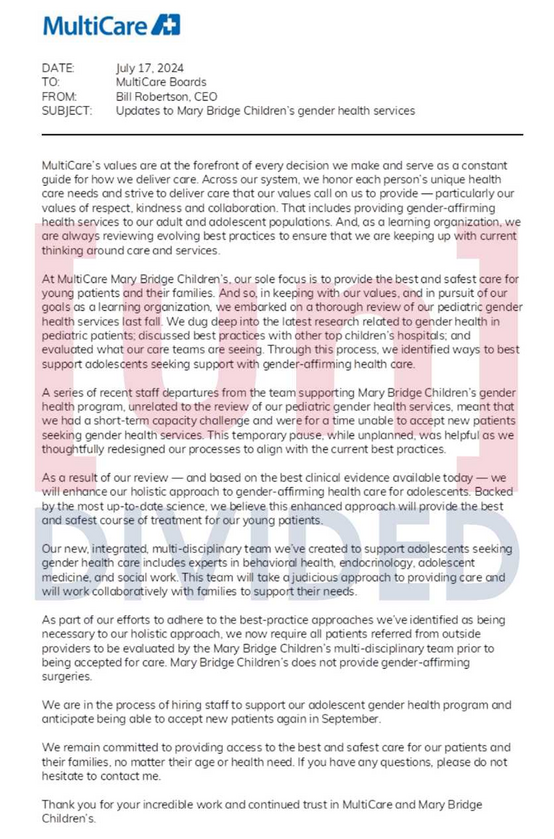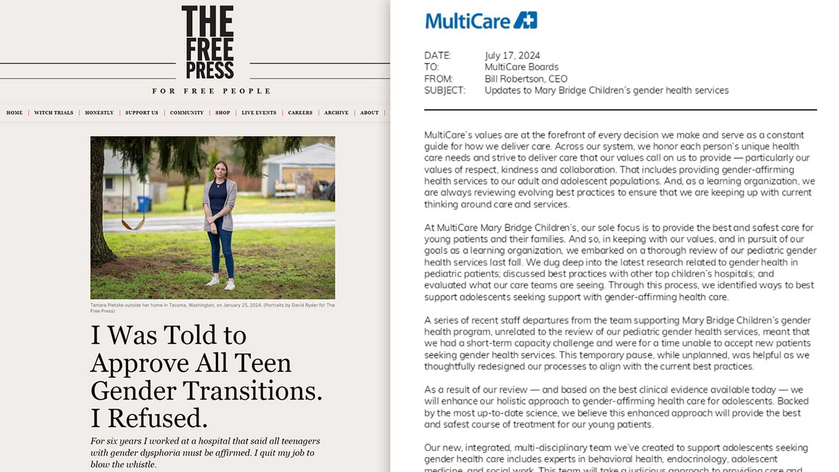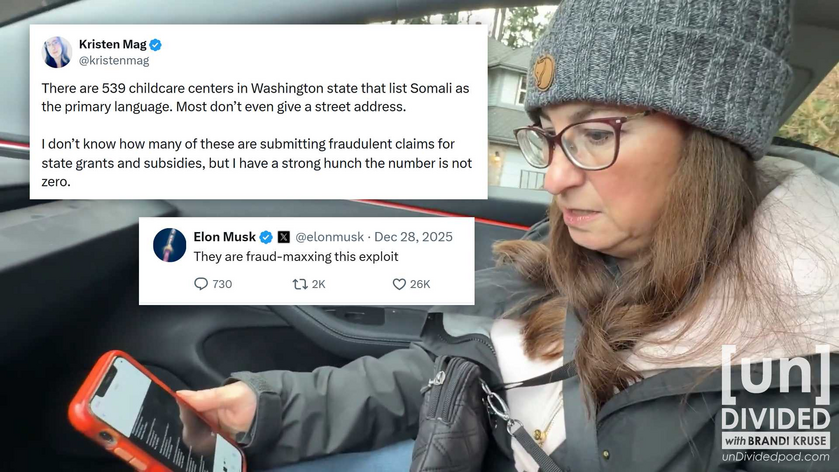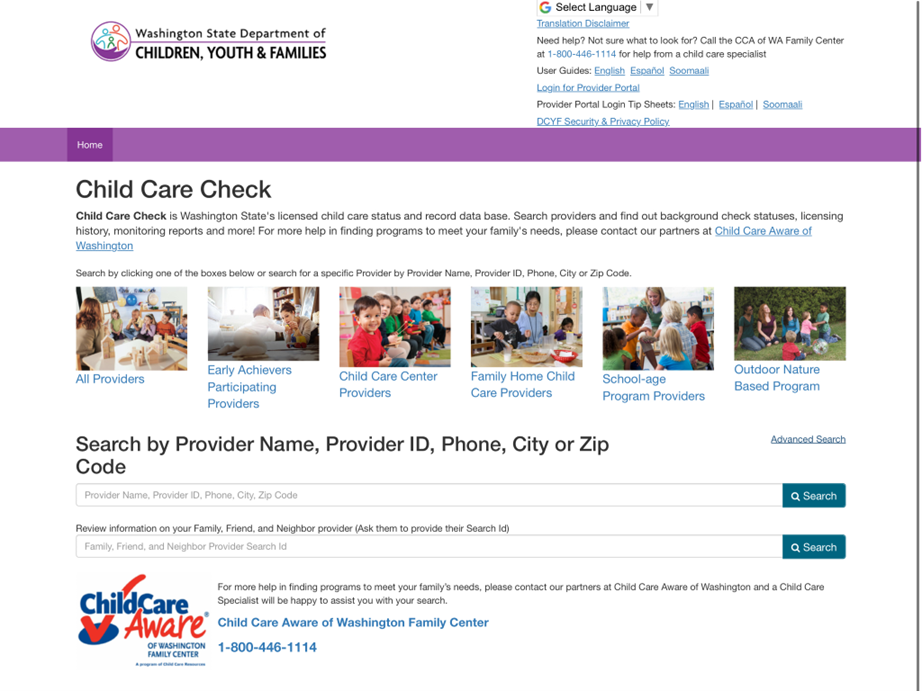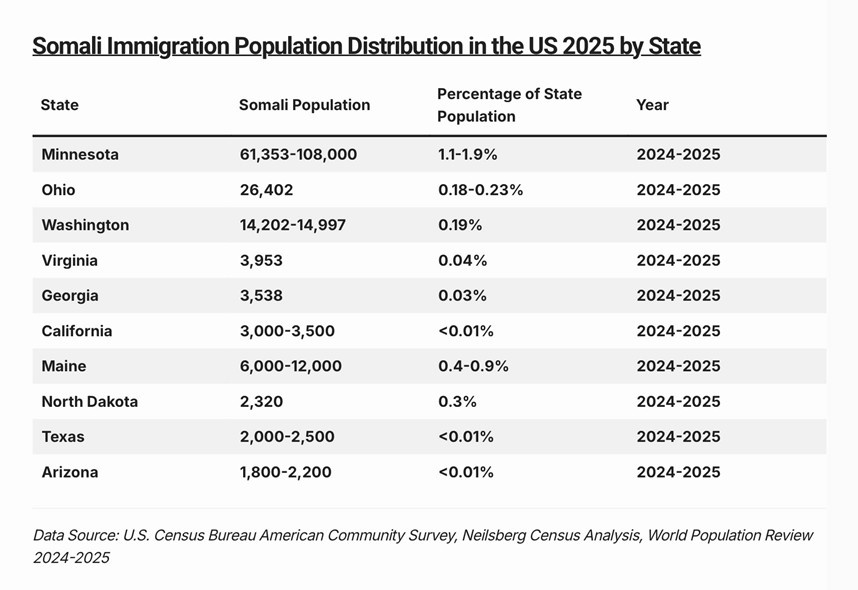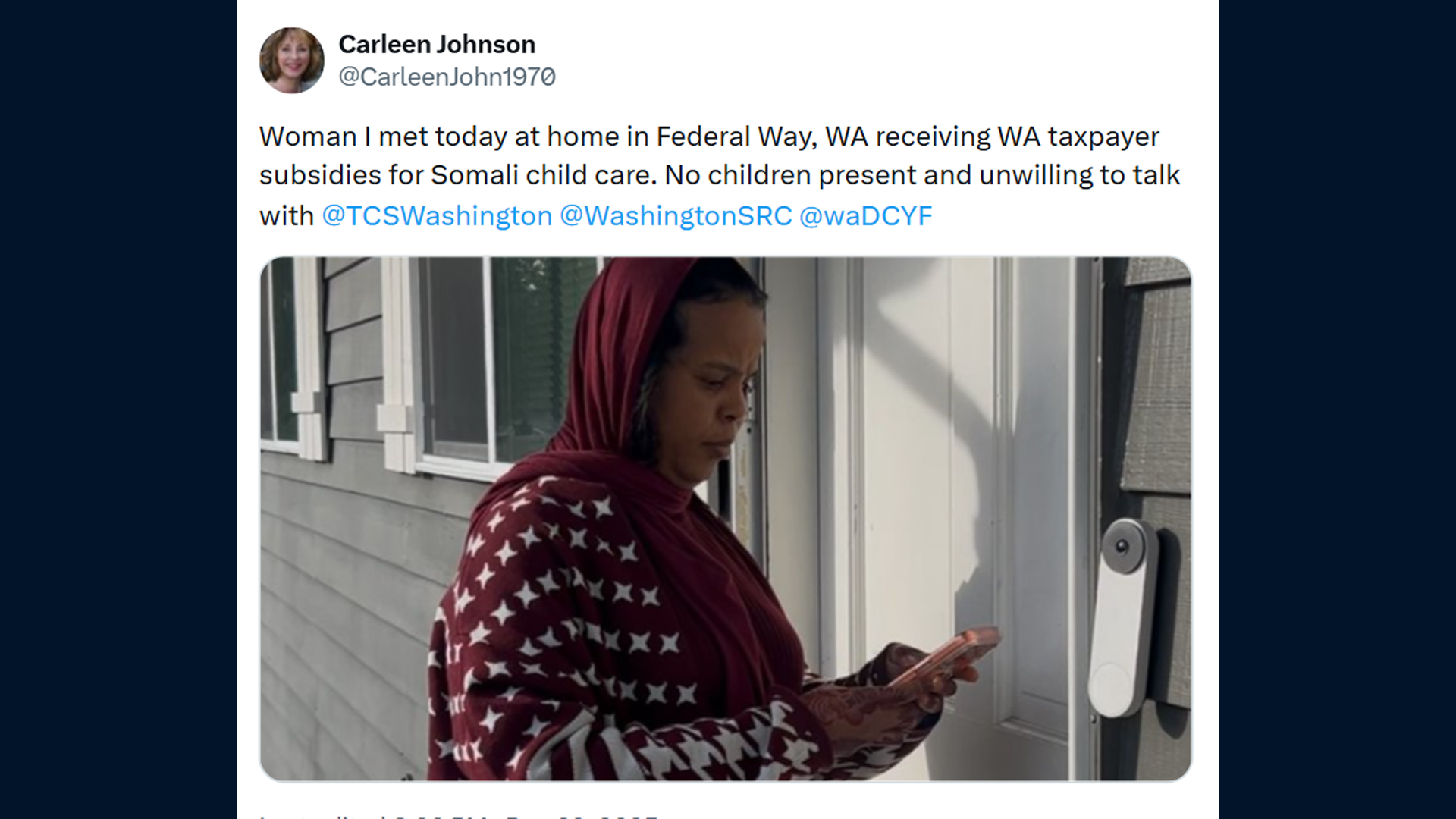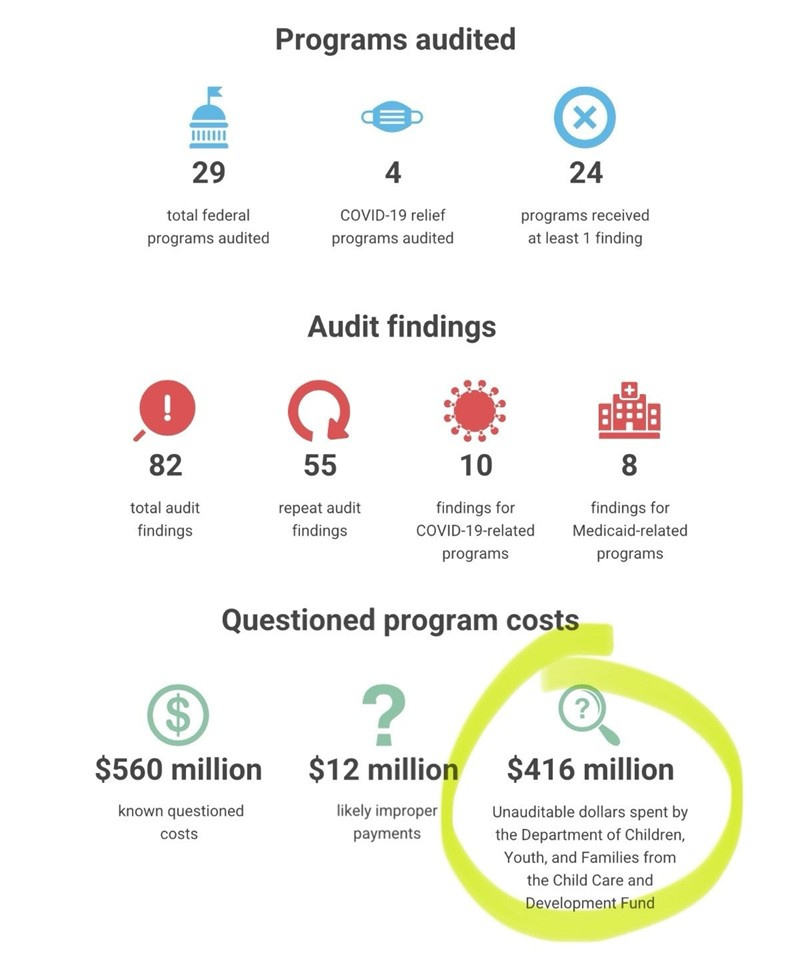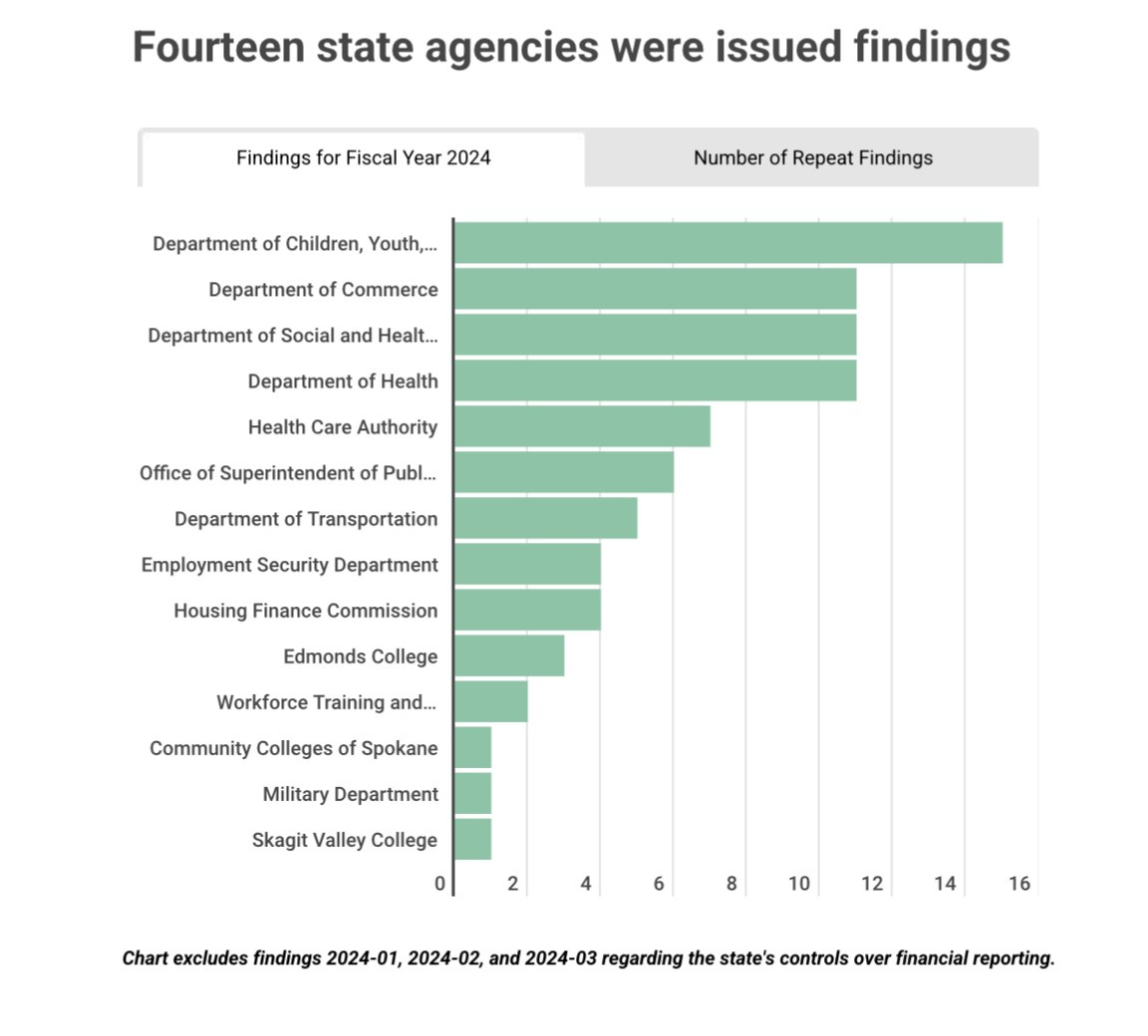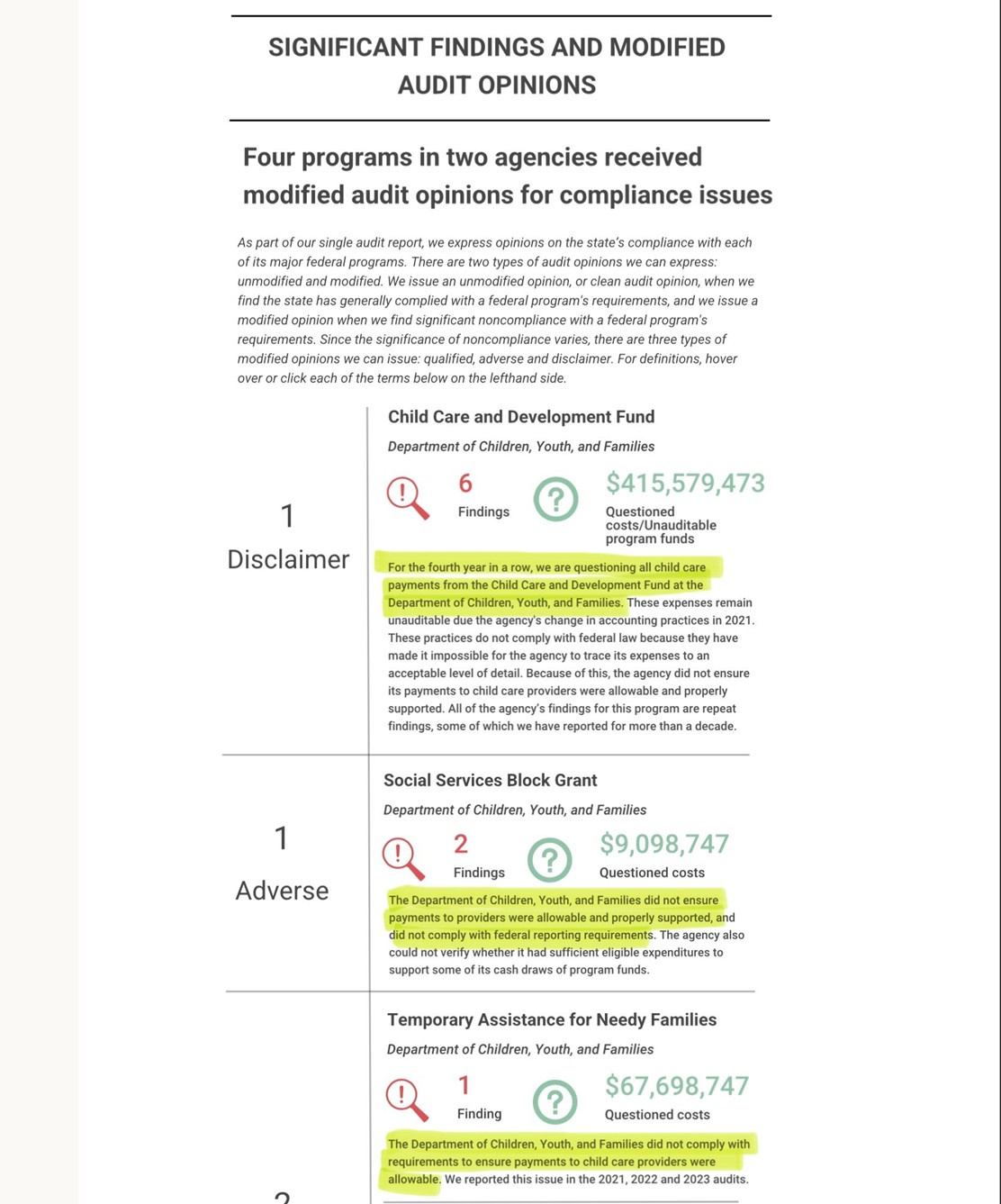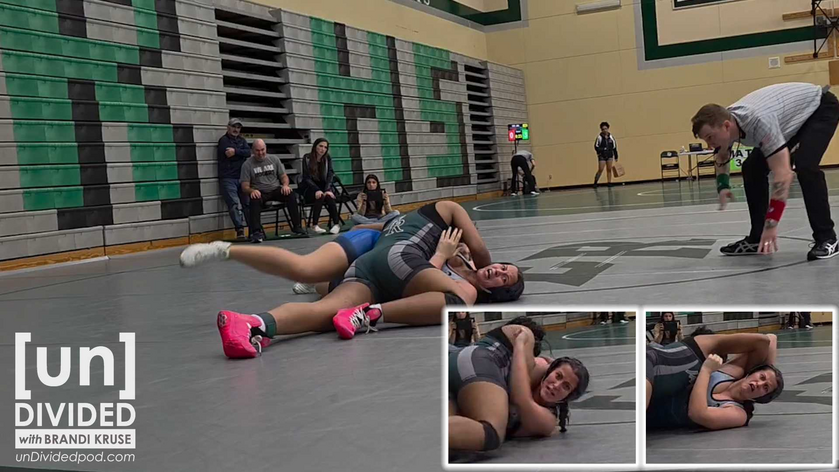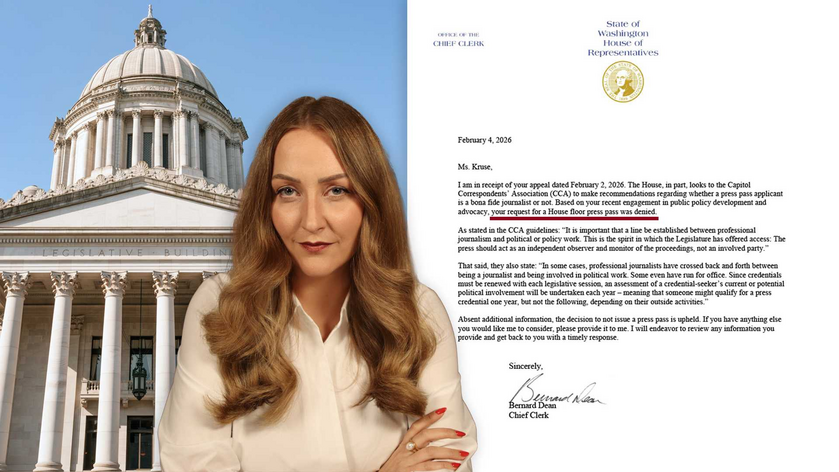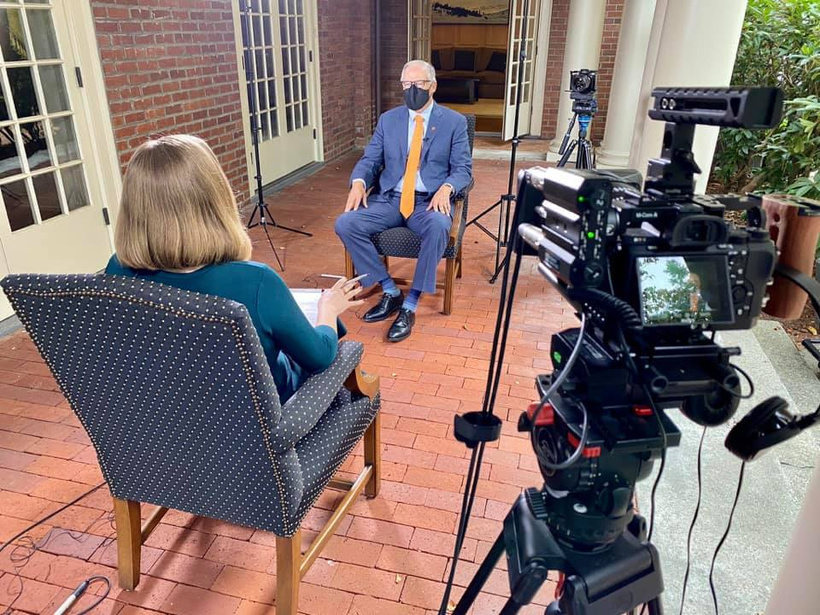In an internal memo to board members earlier this month, obtained exclusively by unDivided, MultiCare’s Mary Bridge Children’s Hospital, located in Tacoma, Washington, said it will be taking a more “holistic approach” to gender treatment for juveniles beginning in September.
The move comes after former MultiCare therapist Tamara Pietzke wrote a blistering report for The Free Press in February, detailing several cases where she was expected to promptly refer youth to the hospital’s gender clinic without first exploring possible reasons the teen might be experiencing gender dysphoria – such as social influences, abuse, or depression.
That is about to change.
The hospital’s July 17 letter to board members, titled “Updates to Mary Bridge Children’s gender health services,” strikes a cautious, but clear tone: the hospital no longer believes skipping such steps is in the best interest of the children who come to them for care.
As a result of our review – and based on the best clinical evidence available today – we will enhance our holistic approach to gender-affirming health care for adolescents. Based on the most up-to-date science, we believe this enhanced approach will provide the best and safest course of treatment for our young patients.
The hospital said it will rely on “experts in behavioral health, endocrinology, adolescent medicine, and social work” to determine the best course of care for kids complaining of gender dysphoria. Perhaps most importantly, the hospital wrote it will “work collaboratively with families to support their needs.”
The changes seem in-line with concerns Pietzke spelled out in her Free Press exposé. In one case, she said she was directed to refer a 13-year-old patient to the gender clinic, despite clear signs of trauma that were unlikely to be resolved with gender hormone therapy.
In an interview on unDivided following The Free Press report, Pietzke detailed numerous struggles the teen patient faced that could be contributing to her feelings of gender dysphoria: Her mom tried to kill her sister. She watched adult movies at home. Her mother had engaged in bestiality. The teen told Pietzke she would “age regress” and sit in front of the TV for hours, watching Teletubbies and sucking on her thumb. She dressed as a “furry” at school – wearing animal ears and a tail.
“Here we are, trying to get a letter for this child to start testosterone and there’s all these other things at play,” Pietzke said. “I wanted to process all the different things that were going on – trouble making friends, trauma history – there was just so much there. So much to unpack.”
Instead, she said the directive from higher ups was clear: “That I would just sign off on whatever was asked.”
Reached for comment about the July 17 letter indicating changes to gender care for minors, Pietzke called it “encouraging.”
“It’s very emotional to see the letter. I’m very grateful to know that my voice has counted in some small capacity.”
Still, she has reservations.
Specifically, she wonders how “experts in behavioral health, endocrinology, adolescent medicine, and social work” will be utilized differently than before.
“We’ve had those people in place before, so how are they going to be taking on a different role where you’re not just fast-tracking people?”
She said she is also skeptical that, as the letter stated, the hospital has been reevaluating practices at the gender clinic since last fall. During that time, she said staff were going through mandatory gender-affirming care training.
“Where I was met with so much hostility for raising any questions or concerns. If that’s true, if they had been looking into it since then, it didn’t trickle down to the supervisors or anyone else in mental health.”
After she quit her job at MultiCare – and was subsequently terminated from another job after her report in The Free Press – Pietzke has gone into private practice where she offers therapy to patients of all ages.
Despite lingering questions about the changes spelled out in the letter, she said she appreciates the broader political implications MultiCare must be balancing.
In a state where lawmakers have prioritized and expanded access to gender treatment for juveniles, in some cases without parental approval, the move could mark a substantial shift away from such life-altering care – changes that will likely be met by a fair share of criticism.
“I have so much respect for the fact that they’re willing to make any changes at all,” Pietzke said. “I know what I, as an individual, the hostility l was met with. I can only imagine the level of concern they have as to how this is going to be received by people.”
“I hope that we’re starting to make the world, or at least our area of the world, a little safer for kids.”
unDivided has reached out to MultiCare for comment and clarity on the forthcoming changes. This story will be updated accordingly.
